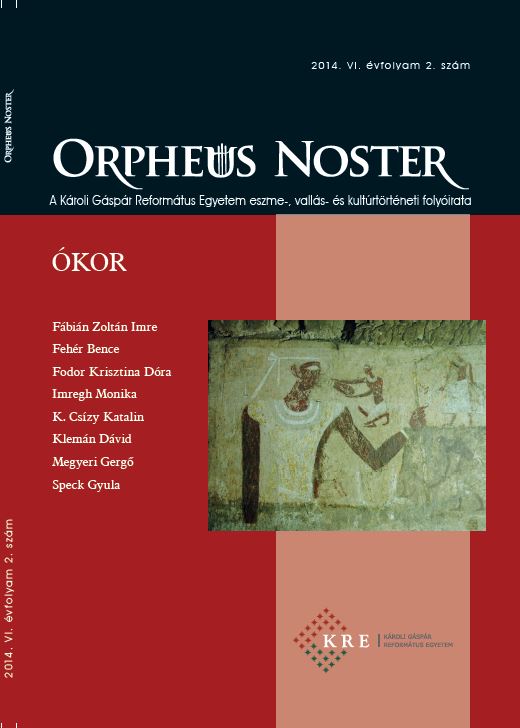A Chrestus-kérdés
The question of Chrestus
Author(s): Krisztina Dóra FodorSubject(s): History, Jewish studies, Ethnohistory, Ancient World, Theology and Religion
Published by: Károli Gáspár Református Egyetem
Keywords: Claudius; Jews in the Roman Empire; Suetonius; Chreszus; Christus
Summary/Abstract: The emperor Claudius expelled the Jews from the city of Rome in 52 AD. This event takes place in the Bible (in the Acts), and is also mentioned by Suetonius. Suetonius provides more informations, including that Jews were rebelling in Rome and that was the reason why Claudius expelled them. He says that the Jews rebelled because of a person whose name was Chrestus. According the Christian tradition this person was Jesus Christ. This thought was derived from Orosius who transcribed the name Chrestus to Christus. Tertullianus also mentioned that at first pagans did not know the right name of Christus so they called him Chrestus. These arguments speak for a fact that in 50 or 52 AD there was a conflict between Christians and Jews in Rome, before the 64th AD Christian persecution. But what if Suetonius’ Chrestus is not Christus? I analysed those inscriptions which contain the name of Chrestus in Rome in the first century. As it turned out Chrestus had to be a slave or a freedman rather than a free man, corresponding with the meaning of the name. Chrestus is a Greek word which means useful. Of what religion was this person named Chrestus? Was he a Jew, pagan or Christian? After the analysis of the inscriptions we can say that Chrestus was more probably pagan or Jew than Christian. But since we are trying to decide only the relations of Jews and Christians, we must say Chrestus was probably a Jewish person and consequently there was a conflict only between Jews, not between Jews and Christians in 52 AD.
Journal: Orpheus Noster. A KRE Eszme-, Kultúr-, és Vallástörténeti Folyóirata
- Issue Year: VI/2014
- Issue No: 2
- Page Range: 72-84
- Page Count: 13
- Language: Hungarian

